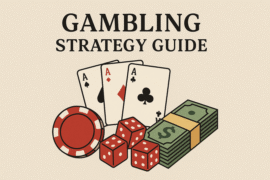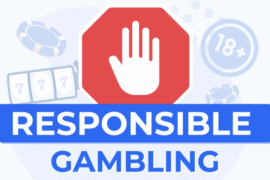This article may contain references to products or services from one or more of our advertisers or partners. We may receive compensation when you click on links to those products or services. Nonetheless, our opinions are our own.
The information presented in this article is accurate to the best of our knowledge at the time of publication. However, information is subject to change, and no guarantees are made about the continued accuracy or completeness of this content after its publication date.

Updated by Albert Fang
Traditionally the cycle of personal finance went a little something like this: get a job, stay there for decades earning a living, save money, retire. While this is not totally irrelevant in today’s world, it is no longer the outstanding option. Nowadays there are so many ways to make a living and so many options to gain financial independence. If being a traditionalist with your finances does not suit you for either the long, or short-term, consider these tips for finding a path that feels authentic to you while also helping your reach your financial goals.
The Gig Economy
The concept of the gig economy is relatively new and can be an option for people whose lives demand professional flexibility. This style of work basically involves piecing together contract work, side hustles, or gigs, to create your overall income. If this excites you, finding a niche within this community is the best place to start. Some examples of gigs would be, freelance writing, rideshare driver, independent child caregiver, and jobs within the hospitality industry.
Working in this way is smart for financial independence because you are not committed long-term to a specific employer, and you have arguably more control over your earning potential than you would working for a corporation earning a salary or preset hourly wage. Here you have the option to work as much or as little as you want, and your income will reflect that choice. Finding a gig that makes sense for you can also be an excellent complement to your traditional job. For example, say you have decided to save money to buy a house, commit yourself to one year of gig work and dedicate all those funds towards your homeownership goal.
Voted "Best Overall Budgeting App" by Forbes and WSJ
Monarch Money helps you budget, track spending, set goals, and plan your financial future—all in one app.
Get 50% OFF your first year with code MONARCHVIP
Diversify
One of the biggest terms in the personal finance sector is diversification. While you have probably heard this term thrown around casually, you may not know what it is, how to do it, or why it matters, but you should. What it is, is the process of allocating your finances in a way that the risk of exposure to any one specific asset is reduced, and the overall risk is spread across many channels to reduce the impact. In layman’s terms, having saved money in multiple places. A life insurance policy is a perfect example. Most commonly life insurance policies are viewed to financially protect your loved ones in the event of your accidental death. This is not wrong, but it not the only use for these funds.
You can sell your life insurance policy through a life settlement to receive a lump sum of cash while you are still alive to be used for needs like debt reduction, long-term healthcare, or even college tuition for a child. There are guidelines and tax implications with this plan of action so be sure to understand them in advance of making this a part of your plan. You can review a guide on everything you need to know about life settlement taxation and seek out professionals to help answer any looming questions about how to best utilize this money move.
Additional resources:
- Heavy mortgage? Consider home loan refinancing to widen your options
- What happens if you just stop paying your loans?
- Refinancing your home might get cheaper this fall

Reviewed and edited by Albert Fang.
See a typo or want to suggest an edit/revision to the content? Use the contact us form to provide feedback.
At FangWallet, we value editorial integrity and open collaboration in curating quality content for readers to enjoy. Much appreciated for the assist.
Did you like our article and find it insightful? We encourage sharing the article link with family and friends to benefit as well - better yet, sharing on social media. Thank you for the support! 🍉
Article Title: Modern Money Moves for Financial Independence
https://fangwallet.com/2021/08/06/modern-money-moves-for-financial-independence/The FangWallet Promise
FangWallet is an editorially independent resource - founded on breaking down challenging financial concepts for anyone to understand since 2014. While we adhere to editorial integrity, note that this post may contain references to products from our partners.
The FangWallet promise is always to have your best interest in mind and be transparent and honest about the financial picture.
Become an Insider

Subscribe to get a free daily budget planner printable to help get your money on track!
Make passive money the right way. No spam.
Editorial Disclaimer: The editorial content on this page is not provided by any of the companies mentioned. The opinions expressed here are the author's alone.
The content of this website is for informational purposes only and does not represent investment advice, or an offer or solicitation to buy or sell any security, investment, or product. Investors are encouraged to do their own due diligence, and, if necessary, consult professional advising before making any investment decisions. Investing involves a high degree of risk, and financial losses may occur including the potential loss of principal.
Source Citation References:
+ Inspo












































